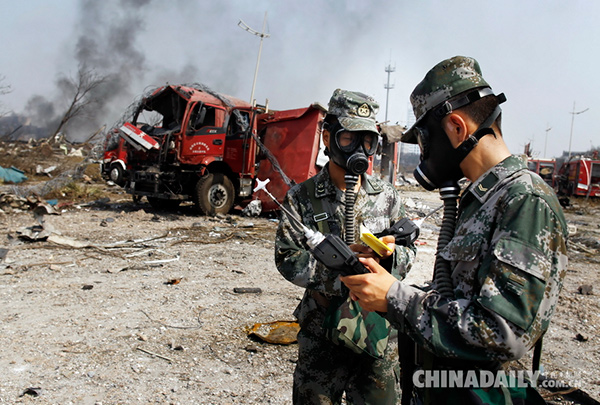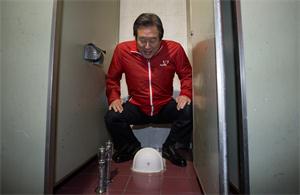Safety risk assessments a focus of investigation
(China Daily) Updated: 2015-08-19 07:49
 |
|
Air quality is monitored amid suspicions that the warehouse stored dangerous chemicals. [Photo by Zhu Xingxin/chinadaily.com.cn] |
Tuesday is the seventh day after the deadly explosions in Tianjin, North China. On this traditional day of mourning for the dead, the central government has reiterated its promise of a thorough investigation to identify the cause of the accident and those who should be held responsible.
One of the key questions the investigators will need to answer is how Ruihai International Logistics Co, the warehouse operator, passed the required safety risk assessment as well as annual inspection for its storage of large amounts of dangerous chemicals, such as several hundred metric tons of sodium cyanide, at the site.
Reporters have repeatedly asked this question at the local government's news conferences and have been told that there were no problems with the assessment. Yet the fact is 114 people are known to have died and 70 people are still missing after hazardous chemicals stored in the warehouse exploded.
Is the company that did the safety risk assessment eligible for the work? Did the local administration of work safety oversee Ruihai's assessment to ensure it was conducted in accordance with the relevant rules and standards?
Passing a safety risk assessment should not be a walk in the park. It should be conducted by work safety experts who have the experience and expertise to locate and identify all the potential safety risks. Reports about how gas stations in some cities can pass a safety risk assessment by paying a company recommended by the local administration of work safety has just added to people's concerns.
The entire story of how Ruihai passed its safety risk assessment needs to be placed under careful scrutiny to determine whether it was conducted correctly and properly.
Whether the company doing the assessment just went through the formalities needs to be investigated. If the inspectors followed the right procedures, the operation of the dangerous goods' warehouse should come under strict scrutiny.
If the assessment was not up to scratch, further investigation is needed to find out whether such practice exists elsewhere in the country and, if that is the case, what can be done to address the problem.
To make sure safety risk assessments serve their purpose and that all the loopholes in the management of dangerous chemicals are plugged are two positives that can come out of a thorough investigation into this tragedy.











